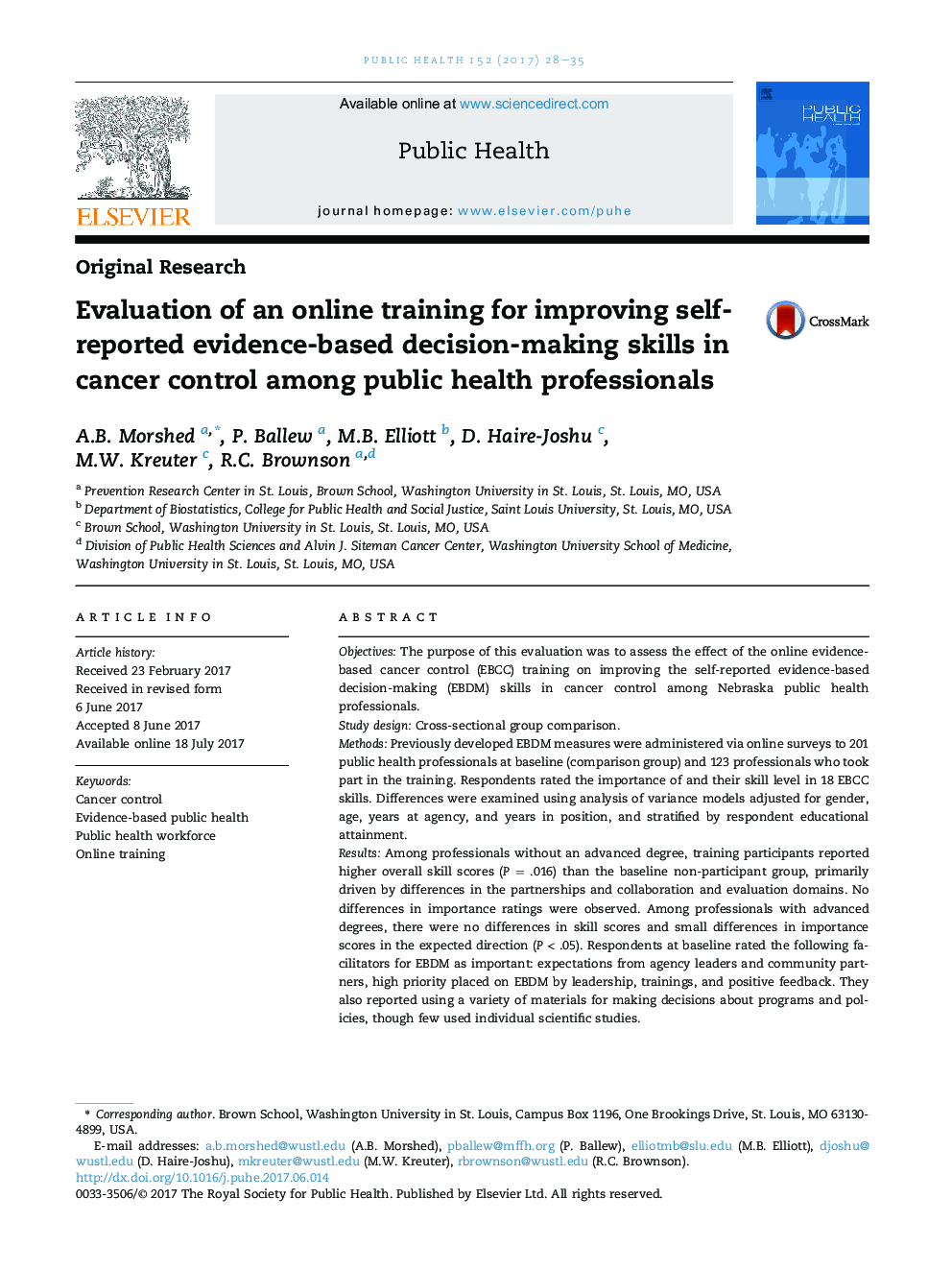| کد مقاله | کد نشریه | سال انتشار | مقاله انگلیسی | نسخه تمام متن |
|---|---|---|---|---|
| 5122718 | 1487191 | 2017 | 8 صفحه PDF | دانلود رایگان |
- The evidence-based cancer control training was evaluated with Nebraska public health workers.
- Participants without advanced degrees reported higher skill scores than respondents at baseline.
- No differences were found among respondents with an advanced degree.
- Online trainings can be cost-effective alternatives for professionals without advanced degrees.
- More research is needed on training content and modalities for professionals with advanced degrees.
ObjectivesThe purpose of this evaluation was to assess the effect of the online evidence-based cancer control (EBCC) training on improving the self-reported evidence-based decision-making (EBDM) skills in cancer control among Nebraska public health professionals.Study designCross-sectional group comparison.MethodsPreviously developed EBDM measures were administered via online surveys to 201 public health professionals at baseline (comparison group) and 123 professionals who took part in the training. Respondents rated the importance of and their skill level in 18 EBCC skills. Differences were examined using analysis of variance models adjusted for gender, age, years at agency, and years in position, and stratified by respondent educational attainment.ResultsAmong professionals without an advanced degree, training participants reported higher overall skill scores (PÂ =Â .016) than the baseline non-participant group, primarily driven by differences in the partnerships and collaboration and evaluation domains. No differences in importance ratings were observed. Among professionals with advanced degrees, there were no differences in skill scores and small differences in importance scores in the expected direction (PÂ <Â .05). Respondents at baseline rated the following facilitators for EBDM as important: expectations from agency leaders and community partners, high priority placed on EBDM by leadership, trainings, and positive feedback. They also reported using a variety of materials for making decisions about programs and policies, though few used individual scientific studies.ConclusionsEBCC led to improved self-reported EBDM skills among public health professionals without an advanced degree, though a gap remained between the self-reported skills and the perceived importance of the skills. Further research on training content and modalities for professionals with higher educational attainment and baseline skill scores is needed.
Journal: Public Health - Volume 152, November 2017, Pages 28-35
